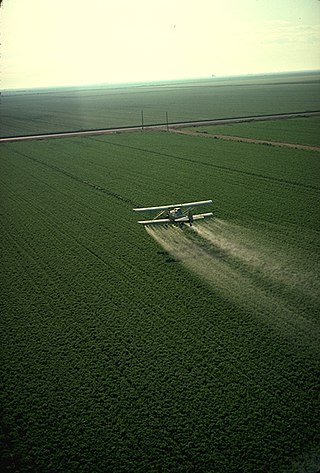
Pesticides are substances that are used to control pests. They include herbicides, insecticides, nematicides, fungicides, and many others. The most common of these are herbicides, which account for approximately 50% of all pesticide use globally. Most pesticides are used as plant protection products, which in general protect plants from weeds, fungi, or insects. In general, a pesticide is a chemical or biological agent that deters, incapacitates, kills, or otherwise discourages pests. Target pests can include insects, plant pathogens, weeds, molluscs, birds, mammals, fish, nematodes (roundworms), and microbes that destroy property, cause nuisance, or spread disease, or are disease vectors. Along with these benefits, pesticides also have drawbacks, such as potential toxicity to humans and other species.

Insecticides are pesticides used to kill insects. They include ovicides and larvicides used against insect eggs and larvae, respectively. The major use of insecticides is in agriculture, but they are also used in home and garden settings, industrial buildings, for vector control, and control of insect parasites of animals and humans.
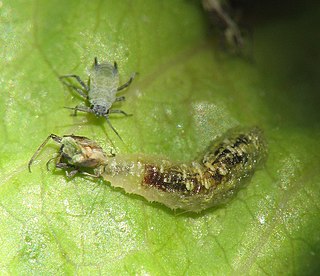
Biological control or biocontrol is a method of controlling pests, whether pest animals such as insects and mites, weeds, or pathogens affecting animals or plants by using other organisms. It relies on predation, parasitism, herbivory, or other natural mechanisms, but typically also involves an active human management role. It can be an important component of integrated pest management (IPM) programs.

Integrated pest management (IPM), also known as integrated pest control (IPC) that integrates both chemical and non-chemical practices for economic control of pests. The UN's Food and Agriculture Organization defines IPM as "the careful consideration of all available pest control techniques and subsequent integration of appropriate measures that discourage the development of pest populations and keep pesticides and other interventions to levels that are economically justified and reduce or minimize risks to human health and the environment. IPM emphasizes the growth of a healthy crop with the least possible disruption to agro-ecosystems and encourages natural pest control mechanisms." Entomologists and ecologists have urged the adoption of IPM pest control since the 1970s. IPM is a safer pest control framework than reliance on the use of chemical pesticides, mitigating risks such as: insecticide-induced resurgence, pesticide resistance and (especially food) crop residues.
A Biopesticide is a biological substance or organism that damages, kills, or repels organisms seens as pests. Biological pest management intervention involves predatory, parasitic, or chemical relationships.

CABI is a nonprofit intergovernmental development and information organisation focusing primarily on agricultural and environmental issues in the developing world, and the creation, curation, and dissemination of scientific knowledge.

Sde Eliyahu is a religious kibbutz in northern Israel. Located five kilometres south of Beit She'an, it falls under the jurisdiction of Valley of Springs Regional Council. In 2022 it had a population of 703.
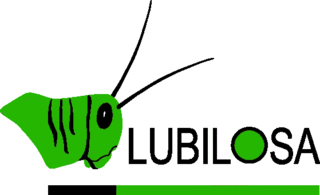
LUBILOSA was the name of a research programme that aimed at developing a biological alternative to the chemical control of locusts. This name is an acronym of the French title of the programme: Lutte Biologique contre les Locustes et les Sauteriaux. During its 13-year life, the programme identified an isolate of an entomopathogenic fungus belonging to the genus Metarhizium and virulent to locusts, and went through all the necessary steps to develop the commercial biopesticide product Green Muscle based on its spores.

The North American Plant Protection Organization (NAPPO), is the phytosanitary standard setting organization recognized by the North American Free Trade Agreement (NAFTA). It was created in 1976 as a regional organization of the International Plant Protection Convention (IPPC) of the Food and Agriculture Organization (FAO) of the United Nations. Previously based in Ottawa, Ontario, it is now headquartered in Raleigh, North Carolina.

The California Department of Pesticide Regulation, also known as DPR or CDPR, is one of six boards and departments of the California Environmental Protection Agency (Cal/EPA).
The International Organization for Biological and Integrated Control (IOBC), is an organization, affiliated with the International Union of Biological Sciences (IUBS), organised to promote and study biological pest control, integrated pest management (IPM) and integrated production.
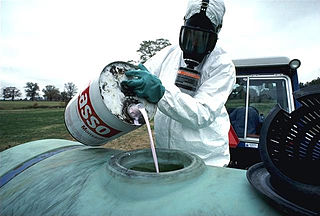
Pesticide regulation in the United States is primarily a responsibility of the Environmental Protection Agency (EPA). In America, it was not till the 1950s that pesticides were regulated in terms of their safety. The Pesticides Control Amendment (PCA) of 1954 was the first time Congress passed guidance regarding the establishment of safe limits for pesticide residues on food. It authorized the Food and Drug Administration (FDA) to ban pesticides they determined to be unsafe if they were sprayed directly on food. The Food Additives Amendment, which included the Delaney Clause, prohibited the pesticide residues from any carcinogenic pesticides in processed food. In 1959, pesticides were required to be registered.

Hans Rudolf Herren is a Swiss American entomologist, farmer and development specialist. He was the first Swiss to receive the 1995 World Food Prize and the 2013 Right Livelihood Award for leading a major biological pest management campaign in Africa, successfully fighting the cassava mealybug and averting a major food crisis that could have claimed an estimated 20 million lives.
Specialty chemicals are particular chemical products which provide a wide variety of effects on which many other industry sectors rely. Some of the categories of speciality chemicals are adhesives, agrichemicals, cleaning materials, colors, cosmetic additives, construction chemicals, elastomers, flavors, food additives, fragrances, industrial gases, lubricants, paints, polymers, surfactants, and textile auxiliaries. Other industrial sectors such as automotive, aerospace, food, cosmetics, agriculture, manufacturing, and textiles are highly dependent on such products.
A bioeffector is a viable microorganism or active natural compound which directly or indirectly affects plant performance (biofertilizer), and thus has the potential to reduce fertilizer and pesticide use in crop production.

The Indian Institute of Spices Research (IISR) is an autonomous organisation engaged in agricultural research related to spices in India. The institute has its headquarters in Moozhikkal, Silver Hills, Kozhikode, Kerala and is a subsidiary of Indian Council of Agricultural Research (ICAR), New Delhi, under the Ministry of Agriculture, India.
The Annual Biocontrol Industry Meeting (ABIM) in Basel is an annual conference of manufacturers of biological plant protection products worldwide. Every year since 2005, 700 – 800 delegates from 300 – 400 firms take part in this English-speaking meeting.
Bernard J. Blum was a French agricultural scientist, industry manager and founding president of the International Biocontrol Manufacturers' Association (IBMA). He campaigned for sustainable development through biological and integrated plant protection with the use of decision-making systems.
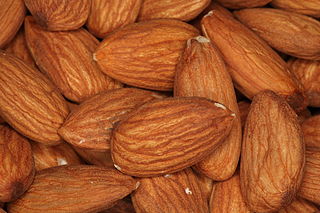
Agriculture is a significant sector in California's economy, producing nearly US$50 billion in revenue in 2018. There are more than 400 commodity crops grown across California, including a significant portion of all fruits, vegetables, and nuts in the United States. In 2017, there were 77,100 unique farms and ranches in the state, operating across 25.3 million acres of land. The average farm size was 328 acres (133 ha), significantly less than the average farm size in the U.S. of 444 acres (180 ha).











